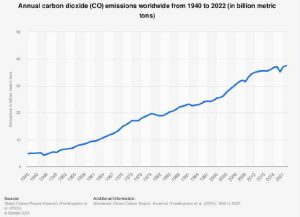

AFRICAN leaders have called for the operationalisation of the Loss and Damage Fund at the upcoming United Nations Climate Conference (COP28), to help the continent deal with the effects of climate change.
The Loss and Damage Fund – established during the COP27 last year – aims to provide financial assistance to nations most vulnerable and impacted by the effects of climate change.
Loss and damage, used to describe climate change impacts beyond what people can adapt to, includes prolonged heatwaves, desertification, crop failure, rising sea levels, acidification of the sea and extreme events, such as bushfires and species extinction.
Addressing the UN General Assembly last week, President Emmerson Mnangagwa said Zimbabwe is implementing a Climate Change Policy and Response Strategy while disaster management and early warning systems continue to be strengthened.
“There is a need for concrete climate action, as opposed to mere promises, so that we strengthen our adaption, resilience and mitigation mechanisms,” Mnangagwa said.
 “We must transition to a low-carbon and resilient global economy by increasing investments in renewable energy, sustainable agriculture and green infrastructure.
“We must transition to a low-carbon and resilient global economy by increasing investments in renewable energy, sustainable agriculture and green infrastructure.
“Commitments made under the United Nations Framework Convention on Climate Change and the Paris Agreement must be honoured to deliver climate justice. It is our hope that progress will be made to operationalise the Loss and Damage Fund,” Mnangagwa added.
South African President Cyril Ramaphosa said that Africa was warming faster than the rest of the world.
He highlighted the need to operationalise the Loss and Damage Fund for vulnerable countries hit hard by climate disasters, as agreed at COP27.
“We are told that of the 20 climate hotspots in the world, 17 are in Africa,” Ramaphosa said.
“We urge global leaders to accelerate global decarbonisation while pursuing equality and shared prosperity.
“We need to advance all three pillars of the Paris Agreement – mitigation, adaptation and support – with equal ambition and urgency.
“African countries, alongside other developing economy countries, need increased financial support to both implement the 2030 Agenda and achieve their climate change goals in a comprehensive and integrated manner,” Ramaphosa added. He said the continent is determined to deploy smart, digital and efficient green technologies to expand industrial production, boost agricultural yields, drive growth and create sustained employment for Africa’s people.
On his part, the President of Kenya, William Ruto, said at the recently concluded Africa Climate Summit that the continent undertook to begin the journey to course-correct and execute a paradigm shift in its pursuit of development and climate action.
“… we recognise that both climate action and sustainable development goals must be pursued simultaneously with greater resolve, urgency and ambition. No meaningful development can take place in countries that are also struggling with climate shocks and yet, at the same time, the frequency of climate emergencies impedes any meaningful development,” Ruto said.

He said as a defining outcome of the Africa Climate Summit, leaders committed Africa to consider the dual problems through an opportunity lens and deliver effective solutions by pursuing a fresh trajectory.
Ruto said no meaningful climate action or development can take place in conditions of financial distress.
“According to IMF data as of last month, 10 low-income countries were in debt distress, and 52 are at high and moderate risk of falling into distress. The 3.3 billion people in these counties are trapped in a vicious cycle of emergency responses, reconstruction, and recovery from more frequent climate shocks, which diverts resources away from both development and climate action and sucks vulnerable countries into a downward spiral of debt and environmental stress,” Ruto said.
“The global community must therefore develop a debt restructuring initiative that does not wait for nations to plunge over the cliff before providing relief. Rather, the new sovereign debt architecture should extend the tenor of sovereign debt and provide a 10-year grace period.”
Nigeria President Bola Tinubu said climate change severely impacts Nigeria and Africa.
“African nations will fight climate change but must do so on our own terms. To achieve the needed popular consensus, this campaign must accord with overall economic efforts” he said.
“Continental efforts regarding climate change will register important victories if established economies were more forthcoming with public and private sector investment for Africa’s preferred initiatives.”
He said Northern Nigeria is hounded by desert encroachment on once arable land while the south is pounded by the rising tide of coastal flooding and erosion.
Malawian President Lazarus Chakwera called for decisive action in climate financing.
“We need decision and action on climate financing that has thus far been nothing more than a promissory note from the developed countries responsible for resourcing our efforts for mitigation, adaptation, and most urgently, loss and damage.
“We need decision and action on debt, for like most Least Developed Countries, Malawi is in distress because its debt is unsustainable, and so our call to action on behalf of all LDCs on this matter remains the same: Cancel the Debts! Cancel the Debts! Cancel the Debts!” Chakwera said.
The African continent contributes the least to climate change yet is the most vulnerable to its impacts. African countries that contribute so little will have to spend up to five times more on adapting to the climate crisis than on healthcare according to research. G20 countries, meanwhile, account for around 75 percent of global greenhouse emissions.
United Nations Environment Programme research shows that finance for adaptation falls short.
The 2022 Adaptation Gap Report indicates that international adaptation finance flows to developing countries are five to 10 times below estimated needs, and will need over US$300 billion per year by 2030.
Loss and damage finance needs are closely connected to the ability to mitigate and adapt to climate change.